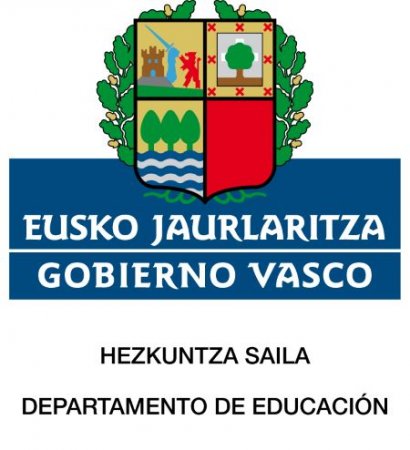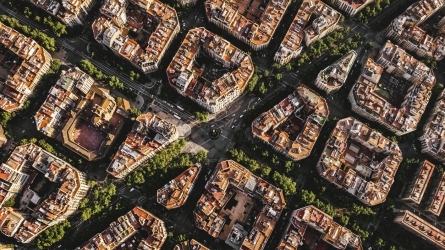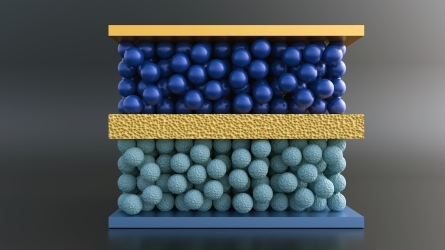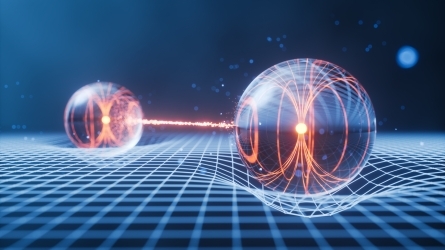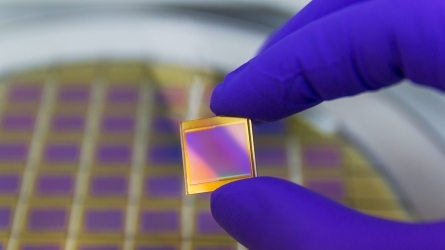
Challenges in Chemical Sensing with Graphene Derivatives and 2D materials (SENSE)
Azalpena
The SENSE workshop will bring together experts in the field of chemical sensing with 2D materials and graphene derivatives seeking for an efficient implementation of such materials in operating sensing devices and architectures. Chemical sensors are part of modern society, finding broad applications in environmental and indoor monitoring, industrial safety, industrial chemical productions processes, pharmaceutical, food products, healthcare, security, etc.
We believe that this workshop will represent a very stimulating environment facilitating the easy flow of knowledge and ideas among participants belonging to multidisciplinary research areas (chemistry, physics, engineering, etc.). The workshop is organized in the frame of the project “SENSATION - Gas Sensing with Atomic Precision for Environmental Protection” supported by the Spanish Ministry of Science and Innovation (MCIN), the European Union and the State Investigation Agency (AEI).
Realizing the next-generation of chemical sensors technologically relevant, continuous and real-time monitoring, portable, eventually compatible with wireless transmission, necessitates access to novel classes of materials and new methods of integration into functional sensing devices, outperforming existing sensors technologies. Graphene derivatives and two-dimensional (2D) materials revealed their potential as ground-breaking materials for chemical sensing. In fact, their large surface-to-volume ratio, makes available an incomparable surface area for material-analyte interactions even at very low concentrations. Moreover, their outstanding electronic, chemical and physical properties arising from their 2D nature, make them suitable for several sensing architectures electrical-, optical- and mechanical-based.
Topics include, though are not limited to:
1. Development of novel routes in organic chemistry, both in solution and on surfaces, for the synthesis of materials with tailored functionalities optimized for chemical sensing applications.
2. Development of computational screening schemes with predictive power for the identification of promising sensing materials.
3. Characterization in ultra-high vacuum of graphene, graphene nanoribbons, nanographene and 2D materials interactions with analytes such as gas, volatile compounds, ions, biomolecules, etc. (with surface science techniques)
4. Characterization of graphene/2D materials-analyses interactions in environmental conditions (with in-operando techniques as near ambient pressure photoemission-NAPP, XAS, Raman, etc....)
5. Proof of concept sensing devices and new sensing technologies based on graphene/2D materials nanoarchitectures.
ORGANIZING COMMITTEE:
Martina Corso- Centro de Física de Materiales (CFM), Donostia-San Sebastián
Aran Garcia-Lekue − Donostia International Physics Center (DIPC), Donostia-San Sebastián
Aitor Mugarza − Institut Català de Nanociència i Nanotecnologia (ICN2), Barcelona
Diego Peña − Centro Singular de Investigaciόn en Química Biolόxica e Materiais Moleculares (CiQUS) and Departamento de Química Orgánica, Universidade de Santiago de Compostela, Santiago de Compostela (Spain)
Dimas Garcias de Oteyza − Nanomaterials and Nanotechnology Research Center (CINN), CSIC-UNIOVI-PA Campus de Mieres - Universidad de Oviedo.
Helburuak
The aim of this workshop is to lay the foundations for the next generation of functional ultrathin sensing materials to be implemented in chemical sensing devices with ultimate selectivity, sensitivity, speed and stability. To this end, we will bring together experts from different research areas to close the gap between research on the sensors macroscopic response when exposed to analytes and research focused on the atomic scale understanding of the basic interaction mechanisms between analytes and sensing materials.
Jarduera nori zuzenduta
- Unibertsitateko ikaslea
- Profesionalak
Zuzendariak

Martina Corso
CFM-CSIC-UPV/EHU
Martina Corso obtained a PhD in Physics in 2006 from the University of Zurich focused on the characterization by surface science techniques of the electronic and structural properties of hexagonal boron nitride grown on metallic surfaces. Her expertise focuses on experimental chemical physics at surfaces explored in ultra-high vacuum conditions. To the present date, she has worked in three different European laboratories (PhD in Zürich, Postdoc and Ikerbasque Fellow in San Sebastián, Alexander von Humboldt fellow in Berlin) and performed experiments on different synchrotron facilities in Europe (ELETTRA, SLS, SOLEIL, ALBA) and USA (ALS and SRC). Since March 2017, she occupies a Tenured Scientist position at the Spanish Research Council (CSIC) and she integrated in the NanoPhysics Laboratory group (NanoLab, cfm.ehu.es/nanophysicslab/) in the Center for Material Physics (CFM) in San Sebastián (Spain). Currently she is sharing the facilities of the NanoLab studying the bottom-up synthesis of functional molecular materials and their electronic characterization at the atomic level.
Hizlariak

Cristina Africh
CNR-IOM

Alejandro Criado Fernández
CICbiomaGUNE
Dr. Alejandro Criado received his BS degree in chemistry, followed by his PhD in organic chemistry at the University of Santiago de Com- postela. Then, he was a postdoctoral fellow at the University of Trieste in the group of Professor Prato. He is currently a Juan de la Cierva – Incorporación postdoctoral researcher at CICbiomaGUNE research center in the Carbon Bionanotechnology group. Dr Alejandro Criado has mainly focused his work on the synthesis of polyarenes, nanographenes, functionalization of carbon nanotubes, graphene for application in electronic devices and biomedicine.

Ganna Gryn'ova
University of Birmingham

Martina Lihter
Institute of Physics

Jose Angel Martin Gago
ICMM-CSIC

Michal Otyepka

Celia Rogero
Centro de Física de Materiales

Tao Wei
Friedrich-Alexander-Universität Erlangen-Nürnberg

Paolo Samori

Luigi Sangaletti
Università Cattolica del Sacro Cuore

Amaia Zurutuza Elorza
Graphenea
Matrikula prezioak
| Registration fees | 2024-09-01 arte |
|---|---|
| 0 EUR | |
| 250,00 EUR | |
| 350,00 EUR |
Kokalekua
Miramar Jauregia
Mirakontxa pasealekua 48, 20007 Donostia
Gipuzkoa
Miramar Jauregia
Mirakontxa pasealekua 48, 20007 Donostia
Gipuzkoa




